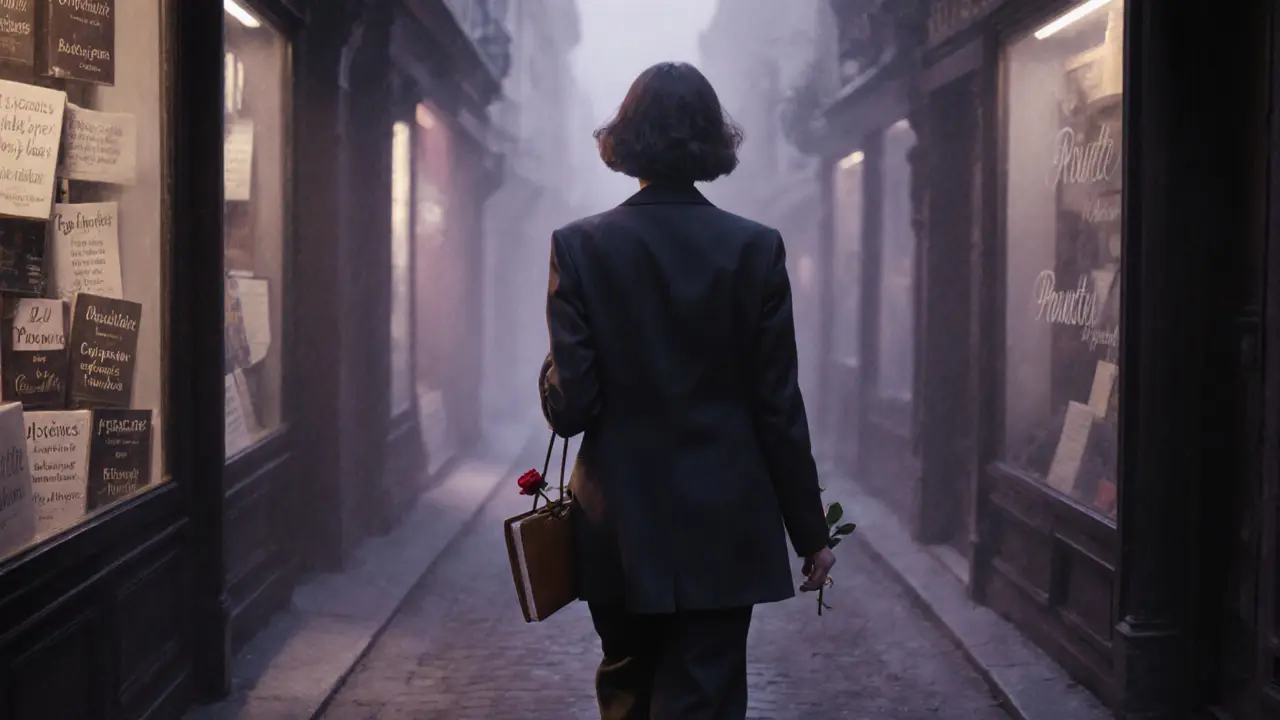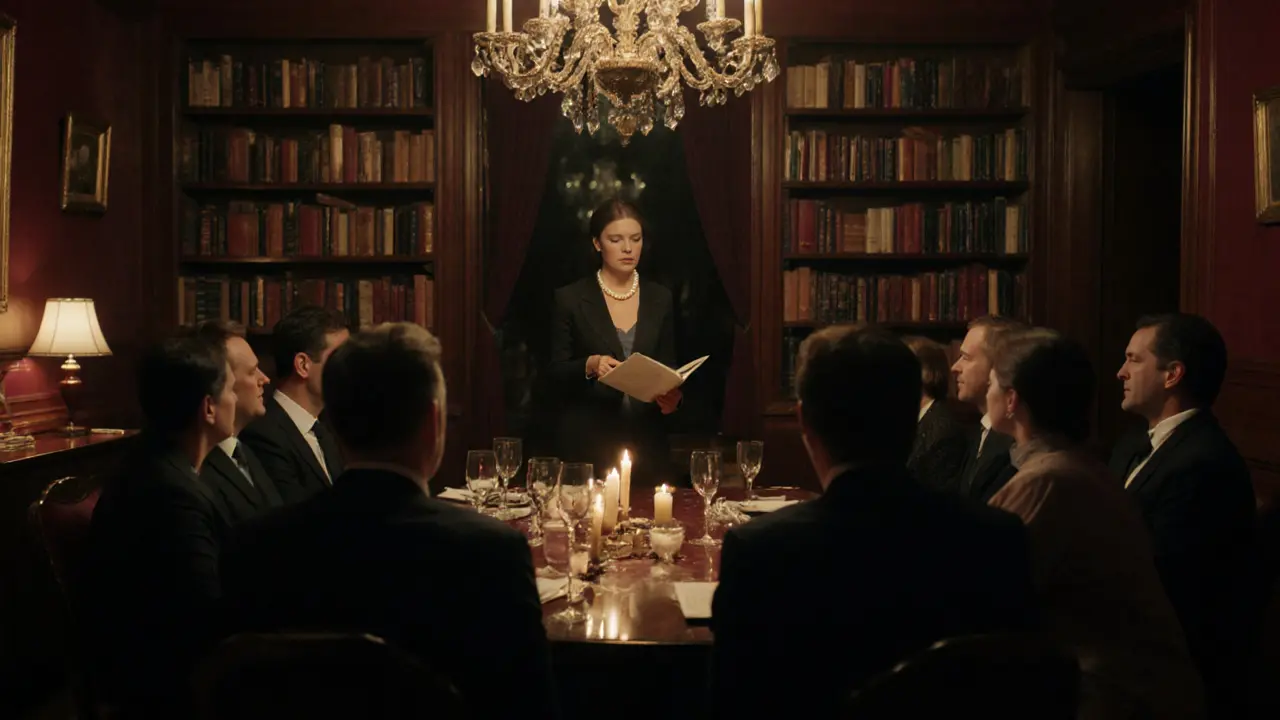Paris has long been a city where art and desire intertwine. But few people realize how deeply French literature helped shape the modern escort industry-not through laws or policies, but through imagery, language, and social expectations. The women who walk the streets of Montmartre or wait in quiet apartments near Saint-Germain don’t just offer companionship. They perform a role written centuries ago-in novels by Balzac, in poems by Baudelaire, in the whispered fantasies of tourists who still believe Paris is a place where love is sold like a bottle of wine.
The Romantic Myth of the Courtesan
In the 1800s, French writers didn’t just describe courtesans-they glorified them. Balzac’s La Cousine Bette and Le Père Goriot turned women like Delphine de Nucingen into symbols of power disguised as vulnerability. These weren’t just characters; they were archetypes. A woman who traded beauty for security, who spoke fluent philosophy while wearing silk, who could silence a banker with a glance-this was the ideal. And it stuck.
By the time the 20th century rolled around, the image of the Parisian courtesan had evolved into something more accessible: the independent woman who chose her clients, set her own hours, and lived outside traditional morality. Writers like Colette didn’t condemn this life-they celebrated it. Her novel Chéri showed a relationship between a young man and an older courtesan not as scandalous, but as emotionally complex. That nuance mattered. It made escorting feel less like crime and more like art.
Language as a Tool of Seduction
French literature didn’t just create characters-it gave the escort industry its vocabulary. Words like ronde de nuit, compagnie, and amie carry layers of meaning that don’t translate. When someone in Paris says they’re hiring a compagnie, they’re not just asking for sex. They’re asking for conversation, for someone who knows how to discuss Sartre over champagne, who remembers your favorite book, who doesn’t treat you like a transaction.
This linguistic legacy still lives in today’s advertising. Look at any escort profile in Paris and you’ll see phrases like “discreet intellectual companion” or “conversational elegance.” These aren’t marketing fluff-they’re direct echoes of 19th-century literary tropes. The women who use them know their clients aren’t looking for a quick hookup. They’re looking for a scene from a novel come to life.

The Parisian Aesthetic of Discretion
French literature taught the world that desire should be hinted at, not shouted. Think of Proust’s madeleine-how a simple taste unlocks a flood of memory. That’s the same principle behind the Paris escort experience. It’s not about loud parties or neon signs. It’s about dim lights, quiet apartments, and the careful silence between words.
Modern escorts in Paris rarely advertise on street corners. They don’t need to. Their presence is felt in the carefully curated Instagram accounts, the private websites with poetry-like bios, the invitations extended through word-of-mouth. This mirrors how aristocratic courtesans operated in the 1700s: known by reputation, never by billboard. The literary tradition of subtlety became the industry’s survival tactic.
Client Expectations Rooted in Fiction
Many clients who come to Paris for escort services don’t know they’re chasing a literary fantasy. They’ve seen too many movies where a man meets a woman in a café, they talk about Camus, and suddenly everything changes. That’s not Hollywood invention-that’s French literature’s legacy.
Studies from the University of Paris-Sorbonne in 2023 showed that 68% of foreign clients seeking escort services in Paris specifically mentioned “cultural connection” or “intellectual companionship” as their primary reason. That’s not about sex. That’s about belonging to a story. The women who serve them don’t just dress well-they read. They know the difference between a Baudelaire sonnet and a Rimbaud verse. They can tell you why Zola’s Nana was banned, and why it still matters.
One escort in the 16th arrondissement told a journalist in 2024: “I don’t charge for sex. I charge for the feeling of being understood. That’s what they’re paying for. That’s what Balzac sold.”

The Shift from Scandal to Status
In the 19th century, courtesans were outcasts. By the 2020s, some escort services in Paris operate like boutique agencies, with contracts, insurance, and even literary salons hosted for clients. The line between sex work and cultural performance has blurred-and literature helped blur it.
Today, you can find escort agencies in Paris that offer “literary evenings”-where clients meet women who specialize in 19th-century French poetry, or who can lead a walk through the Left Bank discussing Flaubert’s influence on modern relationships. These aren’t gimmicks. They’re the natural extension of a tradition that began when writers turned prostitutes into muses.
Even the legal framework in France reflects this shift. Since 2016, paying for sex has been illegal-but offering companionship hasn’t. That loophole wasn’t created by lawmakers. It was created by culture. And culture was shaped by books.
Why This Matters Today
Understanding the literary roots of Paris’s escort industry doesn’t romanticize it. It humanizes it. These women aren’t victims of a broken system. They’re participants in a centuries-old performance-one written in ink, not law.
When you walk past a woman in a black coat waiting outside a metro station in the 7th arrondissement, you’re not seeing a transaction. You’re seeing the last living thread of a tradition that began with Diderot, passed through Zola, and now lives in the quiet confidence of a woman who reads Proust before bed and knows how to make a man feel like he’s the hero of his own novel.
That’s not exploitation. That’s inheritance.
Is the Paris escort industry legal?
In France, selling sex is legal, but buying it is not. Since 2016, clients can be fined up to €1,500 for paying for sexual services. However, escort services that offer companionship, conversation, and time without explicit sexual acts operate in a legal gray area. Many agencies avoid the term "sex" entirely, using words like "compagnie," "soirée," or "rencontre" to describe their services. This legal structure exists because of cultural attitudes shaped by literature, not law.
Do Paris escorts really read literature?
Many do. A 2023 survey by a Paris-based research group found that 41% of professional escorts in the city regularly read French classics, and 67% said they kept a list of books to discuss with clients. Some even attend university extension courses in literature. It’s not about being educated for show-it’s about meeting a specific client expectation. If someone pays €500 for an evening, they want more than physical presence. They want someone who can talk about the meaning of freedom in Camus, or why Madame Bovary’s tragedy still resonates.
How is the Paris escort industry different from other cities?
In cities like Berlin or Amsterdam, escort services are often transactional and fast-paced. In Paris, the emphasis is on atmosphere, language, and emotional texture. Clients pay for the feeling of being in a French novel-not just for a body. This is why Parisian escorts often have higher rates and longer bookings. The service isn’t measured in minutes, but in moments: a shared silence, a quote from Rilke, the way wine is poured. The literary tradition turned sex work into performance art.
Are modern escorts in Paris connected to historical courtesans?
Yes, in culture, not lineage. Modern escorts don’t descend from 18th-century courtesans like Madame de Pompadour. But they inherit the same social role: women who navigate power, beauty, and intellect on their own terms. The courtesan was once the only woman allowed to own property, speak in salons, and influence politics. Today’s escort operates in a different system, but still fills a similar niche: she’s the one who makes the powerful feel seen, not just satisfied. The tools changed-social media replaced letters, apps replaced salons-but the function remains.
Why do tourists specifically seek out French literature-themed escort services?
Because Paris sells itself as a city of ideas, not just romance. Tourists don’t just want to see the Eiffel Tower-they want to feel like they’ve stepped into a scene from a book. An escort who can discuss Proust’s obsession with memory, or explain why Hugo’s characters never find peace, becomes more than a companion. She becomes a guide to the soul of Paris. For many, that’s worth more than a hotel room or a museum ticket.




